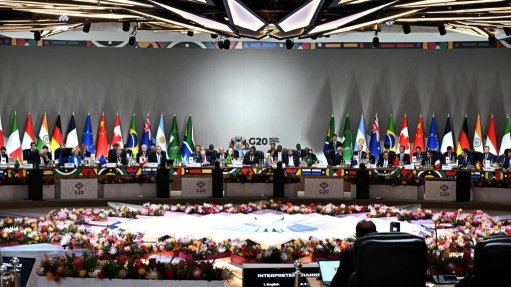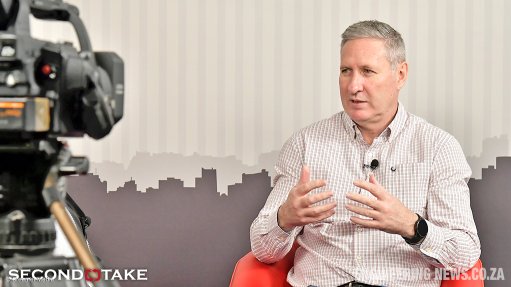Economic Green Shoots Create Prime Opportunity for SA Manufacturing Revival
This article has been supplied and will be available for a limited time only on this website.
By: Dr Andrew Dickson - engineering executive at CBi-electric: low voltage
A promising economic turnaround is on the horizon for South Africa, creating a pivotal moment for the nation’s manufacturing sector. The recently delivered Medium-Term Budget Policy Statementprojects real GDP growth to more than double to 1.2 per cent in 2025, with an average growth of 1.8 per cent forecasted between 2026 and 2028. This improved outlook, underpinned by progress towards fiscal sustainability and a more favourable interest rate environment, lays the groundwork for a potential industrial recovery.
However, this positive macroeconomic picture is not yet reflected on the factory floor. The latest Absa Purchasing Managers’ Index (PMI), falling to 49.2, serves as a reminder of the sector's underlying fragility. This dip back into contractionary territory highlights that broad economic tailwinds alone are not enough to guarantee a manufacturing revival. It shows that procurement managers are not just spectators but key players who can turn this fledgling momentum into sustained growth. Every sourcing choice now represents a strategic investment in our own economic resilience.
Why Choosing Local Matters
Every business is now forced to weigh the higher upfront costs of some local products against the long-term price of hollowing out our own economy.
In our existing predicament, decades of deindustrialisation have forced more and more raw materials to be sourced from overseas. This often pushes up input costs, which ultimately makes everything downstream more expensive. It also leaves the entire value chain vulnerable to global shocks and creates an over-reliance on a handful of international suppliers, running the risk of having a single raw material's price or availability skew the entire cost of manufacturing. As a result, consumers pay more for local products, decreasing their buying power and increasing the chance that products manufactured overseas are purchased.
Choosing local is the most direct way to reverse this. Every Rand spent on a South African-made product circulates back through the economy, supporting the potential for reindustrialisation of the supply chain. This, in turn, supports the creation of jobs and begins a positive cyclic process of growth and resilience, ultimately strengthening the entire industrial base.
A Rigged Game
However, for local procurement to be truly effective, it must happen on a level playing field. Last year’s scrapping of the de minimis tax rule, which had allowed low-value imports to bypass VAT and full duties, was a significant victory for local manufacturing. However, this reform alone has not levelled the playing field. The game remains compromised by other structural loopholes and international governments supporting subsidising their industrial activities, resulting in foreign goods being purchased over domestic products.
Importers still benefit from routing shipments through countries with favourable trade agreements or by qualifying for complex duty rebates that are often out of reach for smaller local firms. The result is distorted pricing that masks the true cost of imports. A procurement officer may see a locally made electrical component at R200 versus an import at R150, without realising that the “cheaper” option wins on tax arbitrage, not genuine efficiency or quality. While fair competition is healthy, competition based on systemic loopholes erodes domestic production, undermines job creation, and weakens our manufacturing sector.
Collaboration as Strategy
Overcoming these systemic challenges cannot be done in isolation. We all have a responsibility to grow the economy, and sustainable growth depends on coordinated action across business sectors:
· Manufacturers should prioritise local sourcing where viable, building supplier relationships that create mutual resilience against import volatility.
· Retailers can give shelf space and visibility to homegrown brands.
· Logistics providers can expand regional networks to support domestic trade.
· Procurement departments must evaluate the total cost of ownership, including economic externalities, not just unit pricing. Admittedly, this is difficult when the bottom line is under pressure, which is why it requires a shift in company culture rather than another rigid target.
Collaboration doesn't require elaborate structures. It can start with proximity-based partnerships where neighbouring businesses share testing facilities, skills development programmes, or export certification processes. Small synergies often generate larger network effects than grand strategic initiatives.
A National Choice
The economic tide is turning. With the government setting a favourable course through the Medium-Term Budget Policy Statement, the private sector now holds the rudder. Strategic local procurement is no longer just a defensive shield against decline; it is the engine required to translate these positive economic forecasts into tangible growth on the factory floor. By choosing to invest in local supply chains, South African businesses can accelerate this nascent recovery, build a truly resilient industrial base, and ensure that the coming growth is shared by all. Our greatest competitive advantage may not lie overseas; it lies in each other.
Article Enquiry
Email Article
Save Article
Feedback
To advertise email advertising@creamermedia.co.za or click here
Comments
Press Office
Announcements
What's On
Subscribe to improve your user experience...
Option 1 (equivalent of R125 a month):
Receive a weekly copy of Creamer Media's Engineering News & Mining Weekly magazine
(print copy for those in South Africa and e-magazine for those outside of South Africa)
Receive daily email newsletters
Access to full search results
Access archive of magazine back copies
Access to Projects in Progress
Access to ONE Research Report of your choice in PDF format
Option 2 (equivalent of R375 a month):
All benefits from Option 1
PLUS
Access to Creamer Media's Research Channel Africa for ALL Research Reports, in PDF format, on various industrial and mining sectors
including Electricity; Water; Energy Transition; Hydrogen; Roads, Rail and Ports; Coal; Gold; Platinum; Battery Metals; etc.
Already a subscriber?
Forgotten your password?
Receive weekly copy of Creamer Media's Engineering News & Mining Weekly magazine (print copy for those in South Africa and e-magazine for those outside of South Africa)
➕
Recieve daily email newsletters
➕
Access to full search results
➕
Access archive of magazine back copies
➕
Access to Projects in Progress
➕
Access to ONE Research Report of your choice in PDF format
RESEARCH CHANNEL AFRICA
R4500 (equivalent of R375 a month)
SUBSCRIBEAll benefits from Option 1
➕
Access to Creamer Media's Research Channel Africa for ALL Research Reports on various industrial and mining sectors, in PDF format, including on:
Electricity
➕
Water
➕
Energy Transition
➕
Hydrogen
➕
Roads, Rail and Ports
➕
Coal
➕
Gold
➕
Platinum
➕
Battery Metals
➕
etc.
Receive all benefits from Option 1 or Option 2 delivered to numerous people at your company
➕
Multiple User names and Passwords for simultaneous log-ins
➕
Intranet integration access to all in your organisation

















